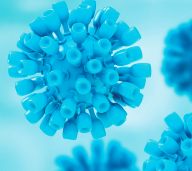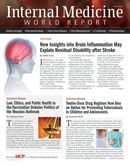Publication
Article
"The Kissing Disease" May Be Disguised As a Cold or Strep Throat
Author(s):
What may seem like a common cold or energy-draining flu could actually be a more serious infection, as examined by JAMA Internal Medicine.

What may seem like a common cold or energy-draining flu could actually be a more serious infection, as examined by JAMA Internal Medicine.
Also known as “mono”, infectious mononucleosis is caused by an Epstein-Barr virus (EBV) infection — one of the most common to infect humans, often affecting adolescents and young adults.
Transmitted through bodily fluids, the virus can be passed on simply by sharing a utensil or drinking glass. However, the virus is most commonly transmitted through saliva, which is why it is also referred to as “the kissing disease”, an individual can be infected through mucus, blood, semen, and vaginal secretions.
Since the symptoms for infectious mononucleosis are similar to many other infections, such as cold, flu, and strep throat, it may not be the first diagnosis to come to mind. However, a blood test can confirm if an individual is infected.
The common symptoms for mono include:
· Fatigue
- Fever
- Sore throat
- Swollen lymph nodes (especially in the neck)
- Body aches
- Loss of appetite
- Rash (more likely in patients taking ampicillin or amoxicillin)
Even though these symptoms tend to subside in 2 to 4 weeks, it’s not uncommon for patients to experience fatigue for weeks or months, and is possible to spread the EBV virus despite an absence of physical symptoms.
Resting and drinking fluids are important in recovering from the virus since there are no medications to treat infectious mononucleosis. However, the pain and fever commonly associated with the infection can be treated with over-the-counter medications and sore throat relief can be found through lozenges and gargling with warm salt water.
Although death from mono is very rare, patients are still encouraged to take precautions in order to recover and avoid spreading the sickness.
Afflicted patients should refrain from strenuous activities and contact sports for at least 4 weeks — since mono can enlarge the spleen and potentially lead to a rupture, patients should seek emergency attention if they have difficulty breathing or severe abdominal pain.






